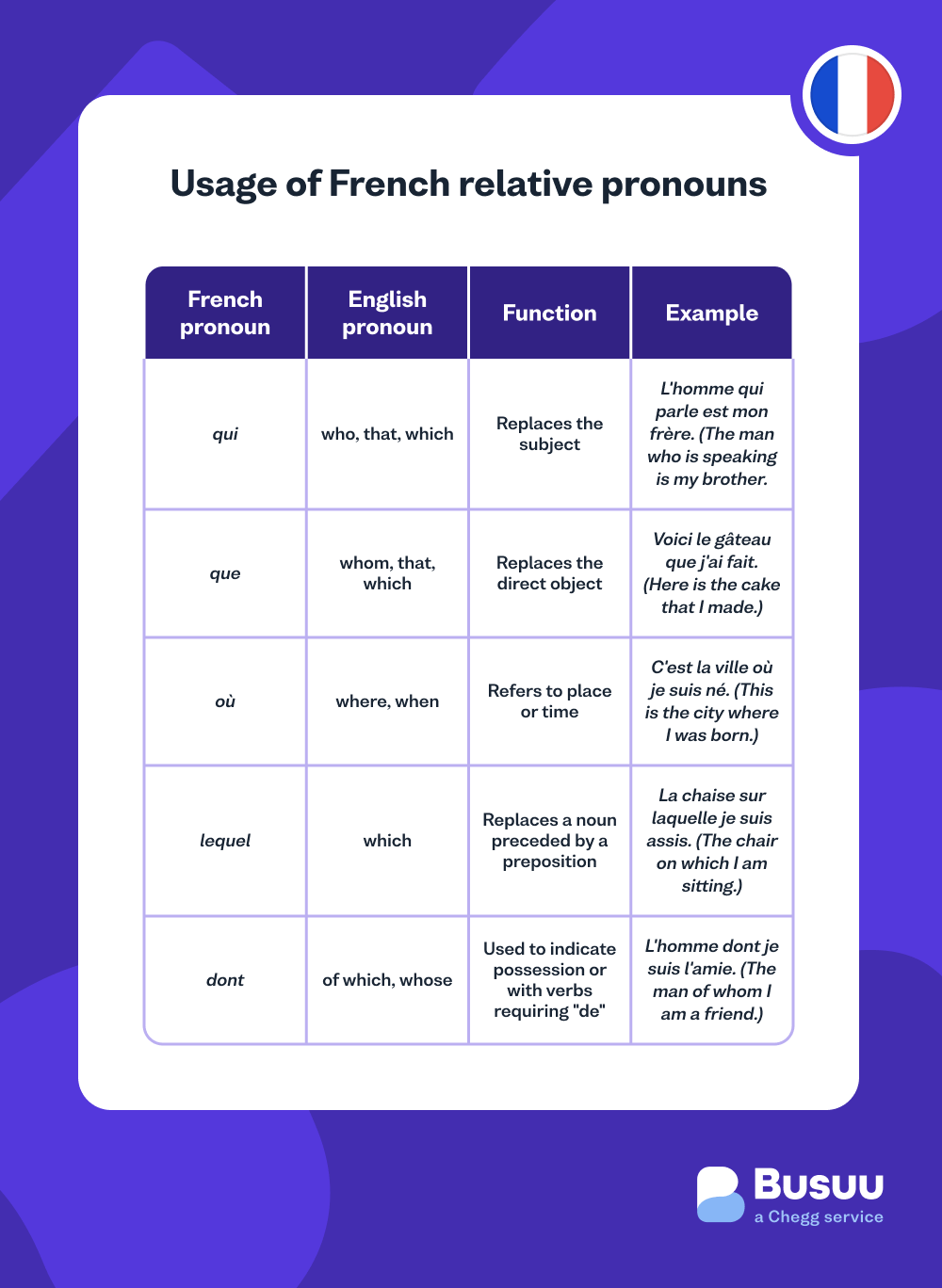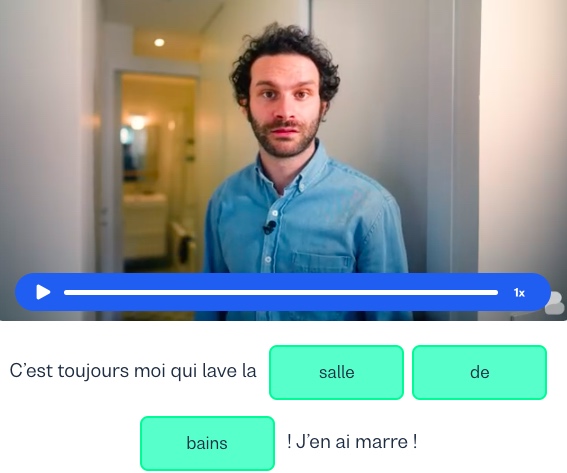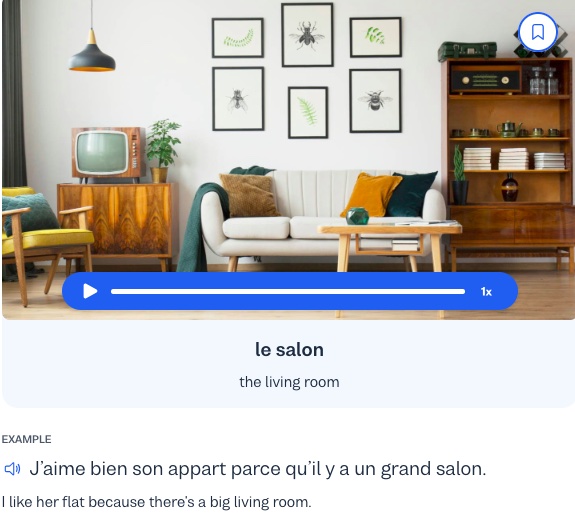Mastering French Relative Pronouns
Dive into relative pronouns in French with our comprehensive guide.
I want to learn...
Relative pronouns play a crucial role in creating detailed sentences. They form a link between two related thoughts. Relative pronouns often merge two simple sentences into a more sophisticated one. In the French language, the relative pronouns "qui" and "que" are very versatile. Discover the unique characteristics and functions of French relative pronouns for a deeper understanding of the French language.
Characteristics of French relative pronouns
French relative pronouns come into play when you need to provide additional information about a person or a thing mentioned in a sentence. They work to replace subjects or objects. They also prevent repetition ensuring a smoother flow. Take the relative pronoun "qui". "Qui" is used to replace the subject in a sentence, whether it's referring to a person or a thing.
For example:
- La femme qui parle est mon amie. (The woman who is speaking is my friend.)
Here, "qui" connects the two ideas, the subject (the woman) in relation to the clause (who is speaking).
"Que", on the other hand, is used to replace the direct object.
For example:
- C'est le livre que j'ai lu. (That's the book that I read.)
In this case, "que" connects the two ideas, the direct object (the book) in relation to the clause (that I read).
The beauty of these pronouns are their ability to weave together sentences for more expressive language.
Functions of French relative pronouns
Relative pronouns in French exist to enhance your understanding of the language. By connecting related ideas and avoiding repetition, these pronouns create more engaging conversations. Discover the functions of French relative pronouns in the following discussion.
1. Linking sentences
The primary function of French relative pronouns is to link sentences together. These pronouns create a relationship between two clauses, where the second clause explains the noun in the first clause.
For instance:
- "C'est la personne qui m'a aidé" (This is the person who helped me).
Here "qui" connects the two ideas into one statement.
2. Indicating relation
French relative pronouns indicate a relation of time, place, or manner of doing something. For example, "où" can refer to a location or a point in time, like:
- "Je me rappelle le jour où tu es né" (I remember the day when you were born).
3. Expressing possession
The relative pronoun "dont" is used to express possession or to describe something.
For example:
- "Voici l'homme dont je t'ai parlé" (Here's the man I told you about).
4. Specificity with "lequel"
The pronoun "lequel" ("laquelle", "lesquels", "lesquelles") is used to specify one or more items from a group.
For example:
- "Parmi tous ces livres, lesquels préfères-tu?" (Among all these books, which ones do you prefer?)

Usage of French relative pronouns
| French Pronoun | English Pronoun | Function | Example |
|---|---|---|---|
| qui | who, that, which | Replaces the subject | L'homme qui parle est mon frère. (The man who is speaking is my brother.) |
| que | whom, that, which | Replaces the direct object | Voici le gâteau que j'ai fait. (Here is the cake that I made.) |
| où | where, when | Refers to place or time | C'est la ville où je suis né. (This is the city where I was born.) |
| lequel | which | Replaces a noun preceded by a preposition | La chaise sur laquelle je suis assis. (The chair on which I am sitting.) |
| dont | of which, whose | Used to indicate possession or with verbs requiring "de" | L'homme dont je suis l'amie. (The man of whom I am a friend.) |
The 5 French relative pronouns
Now let’s learn more about each of the five relative pronouns in French and see some of their examples to show you how they are used.
1. Qui
Qui is a French relative pronoun that translates into English as "who", "which", or "that".
Here are some examples of it in action:
- "La personne qui parle est mon professeur." (The person who is speaking is my professor.)
In this sentence, "qui" is used to replace "la personne" (the person).
- "L'ordinateur qui est sur la table est le mien." (The computer that is on the table is mine.)
Here, "qui" is referring to "l'ordinateur" (the computer).
Qui can also be used after a preposition to refer to people:
- "La femme avec qui je travaille est très intelligente." (The woman with whom I work is very intelligent.)
In this case, "qui" is used after the preposition "avec" (with) to refer to "la femme" (the woman).
2. Que
Que, on the other hand, can be translated as "whom", "which", "that", or sometimes it's simply omitted.
Examples:
- "C'est le livre que j'ai lu." (That's the book (that) I read.)
In this sentence, "que" is replacing "le livre" (the book).
- "L'homme que j'aime habite en France." (The man (whom) I love lives in France.)
Here, "que" is replacing "l'homme" (the man), serving as the object of the verb "aime" (love).
3. Où
Où is a French relative pronoun that translates to "where" in English, but it can also mean "when" in certain contexts. It can refer to a place or a time.
Here are a few examples:
- "Paris est la ville où je suis né." (Paris is the city where I was born.)
In this sentence, "où" is referring to the place "Paris".
- "L'été est la saison où je suis le plus heureux." (Summer is the season when I am the happiest.)
In this example, "où" is referring to the time "l'été" (summer time).
4. Lequel
Lequel is a relative pronoun that translates to "which one" in English. Its forms are lequel (masculine singular), laquelle (feminine singular), lesquels (masculine plural), and lesquelles (feminine plural). It's often used after prepositions.
For instance:
- "Voici deux livres. Lequel préfères-tu?" (Here are two books. Which one do you prefer?)
Here, "lequel" is used to refer to "deux livres" (two books).
- "J'ai plusieurs idées, sur lesquelles voulez-vous travailler?" (I have several ideas, which ones do you want to discuss?)
In this example, "lesquelles" is used to refer to "plusieurs idées" (several ideas).
5. Dont
Dont is a very important relative pronoun in French, but it is difficult for English speakers because it has several significances. It can mean "whose", "of whom", or "about which", but it's most commonly used to replace "de + noun".
Examples:
- "Voici l'homme dont je t'ai parlé." (Here is the man (about whom) I told you.)
In this sentence, "dont" is used to replace "de l'homme" (about the man).
- "Elle a trois frères, dont deux vivent à l'étranger." (She has three brothers, two (of whom) live abroad.)
Here, "dont" is used to replace "de ses frères" (of her brothers).
Recap on French relative pronouns
French relative pronouns allow for more complex and fluent expression. They connect clauses to one another, often replacing a noun that is already mentioned to avoid repetition.
Learning to correctly use these pronouns significantly enhances your French skills. It might seem daunting at first due to the variety of uses, but with lots of practice, these relative pronouns become intuitive. They are invaluable in forming more advanced sentence structures and provide an essential stepping stone towards fluency in French.
Don’t stop now…keep the momentum going!
You just made a big step in your French language learning journey by knowing more about French relative pronouns, congratulations! Continue your learning streak and learn more French grammar and vocabulary with Busuu’s free online courses and learning resources today!

